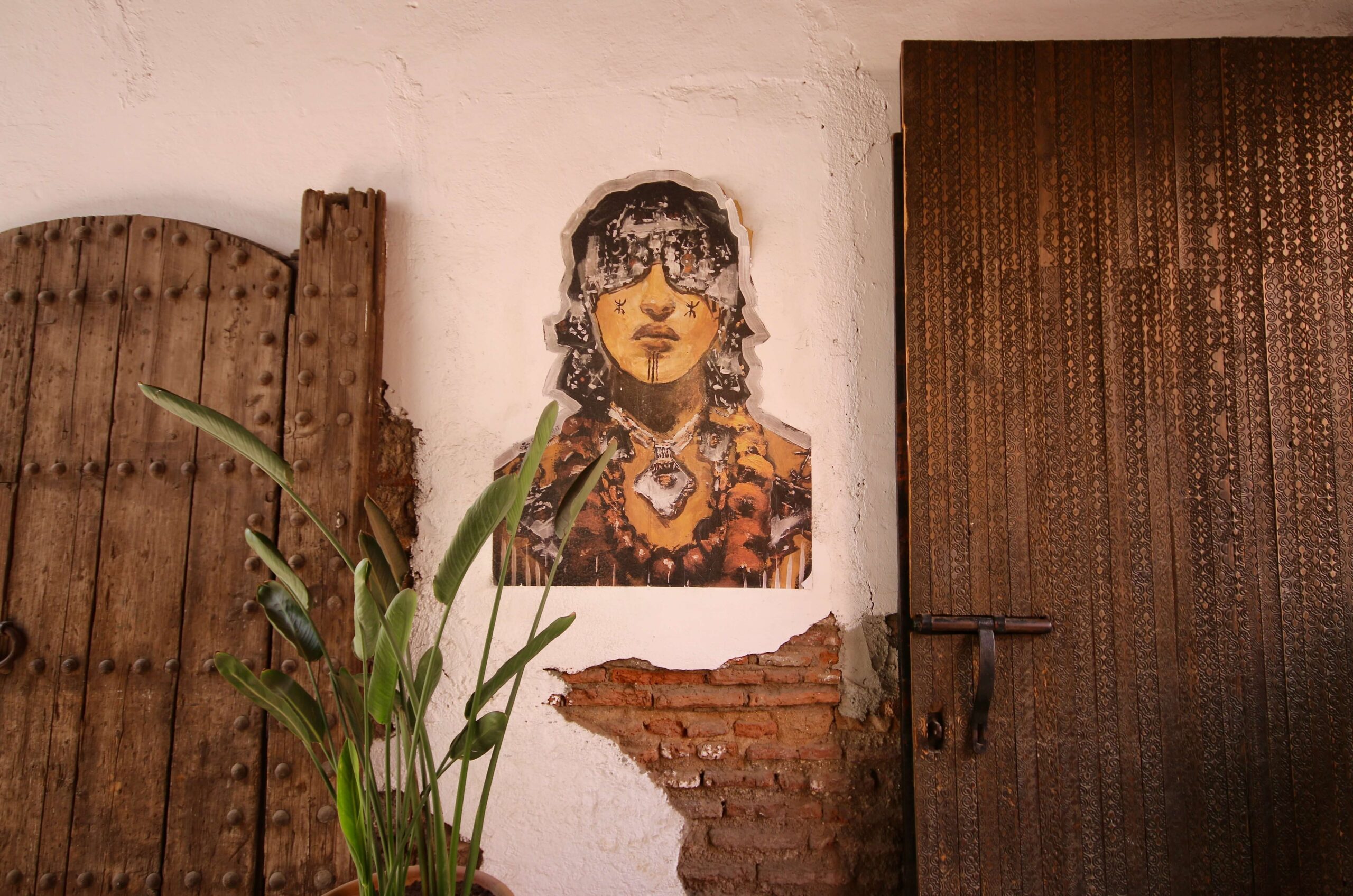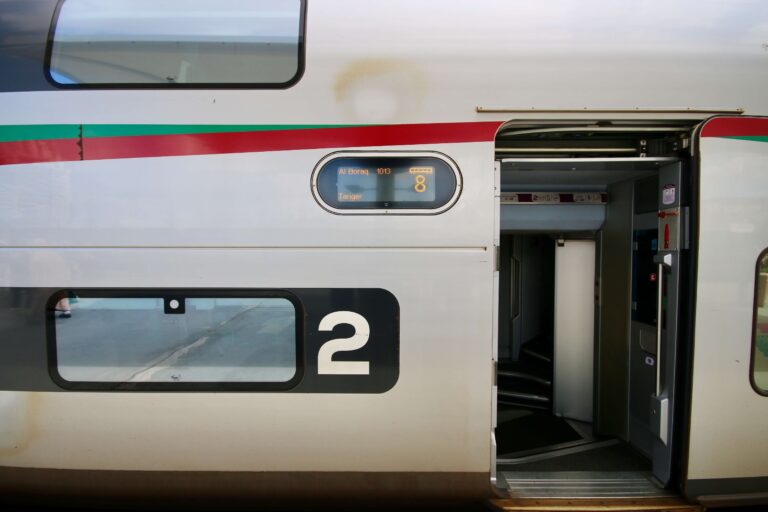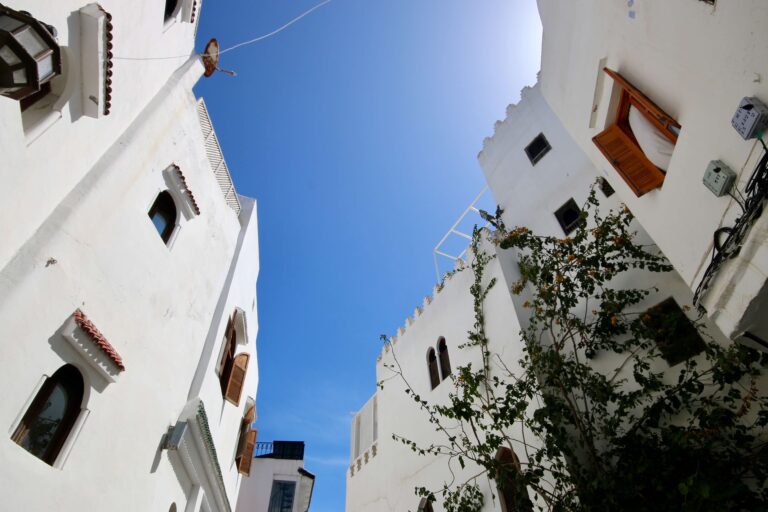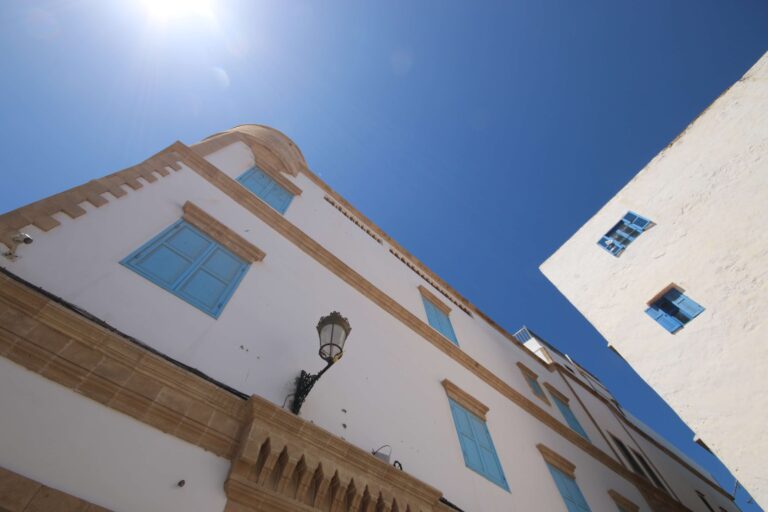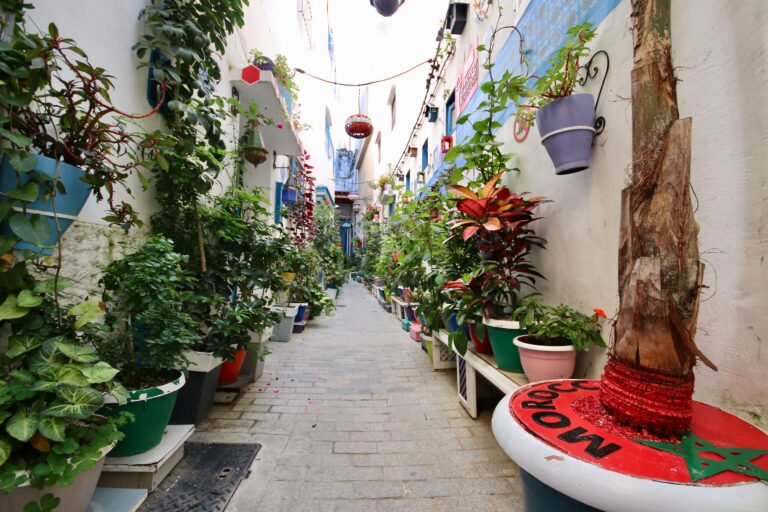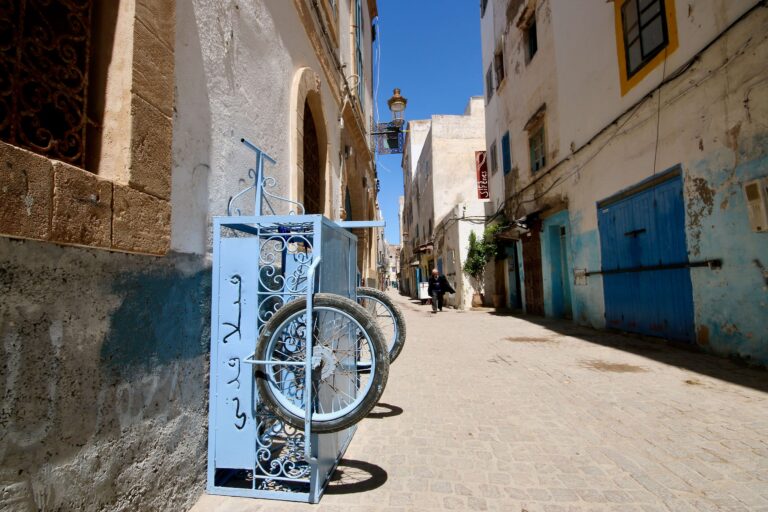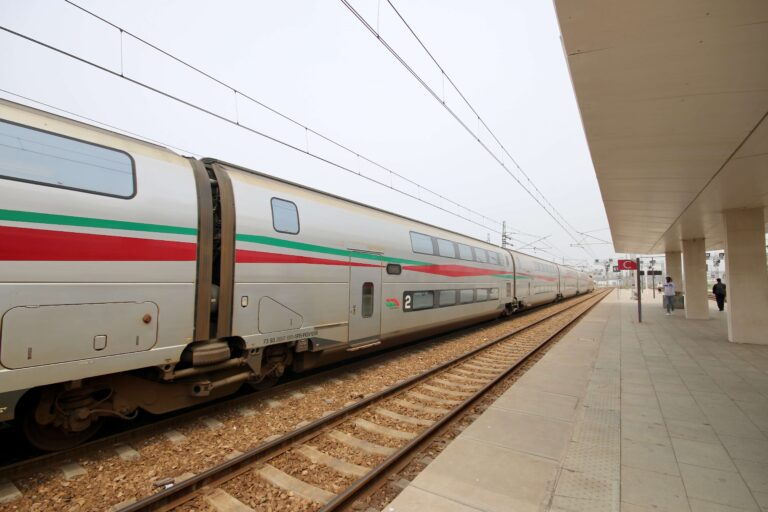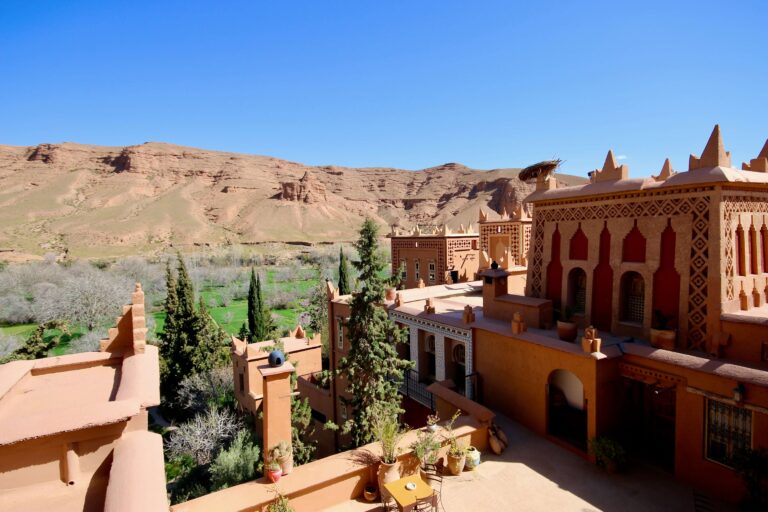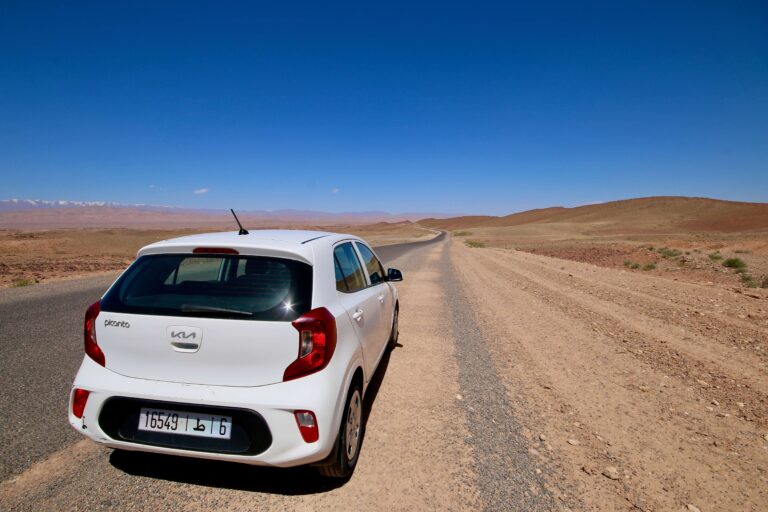Is it Safe to Travel Solo in Morocco?
Wondering if it’s safe to travel solo in Morocco? As someone who has travelled Morocco solo on numerous occasions, I understand it’s not always smooth sailing.
I remember venturing out onto the streets of Marrakech on my first day in the country back in 2014 and being annoyed by the attention directed at me by local men. I felt INCREDIBLY uncomfortable. But after 10 years of travelling the world, largely independently, it wasn’t a completely new experience.
A few days later, I travelled to Essaouira, and there was no harassment from men whatsoever. The same thing happened when I arrived in Taghazout. Here, the locals were so used to seeing women in swimsuits on the beach that they didn’t blink an eye.
It soon became apparent that there were particular cities in Morocco where harassment from men was more pronounced and destinations where it didn’t exist.
Over the years, I’ve spoken with lots of women travelling solo in Morocco. It’s clear that the behaviour of some local men can be a problem.
Wondering if Morocco is good for solo travelling? Check out my detailed answer here.
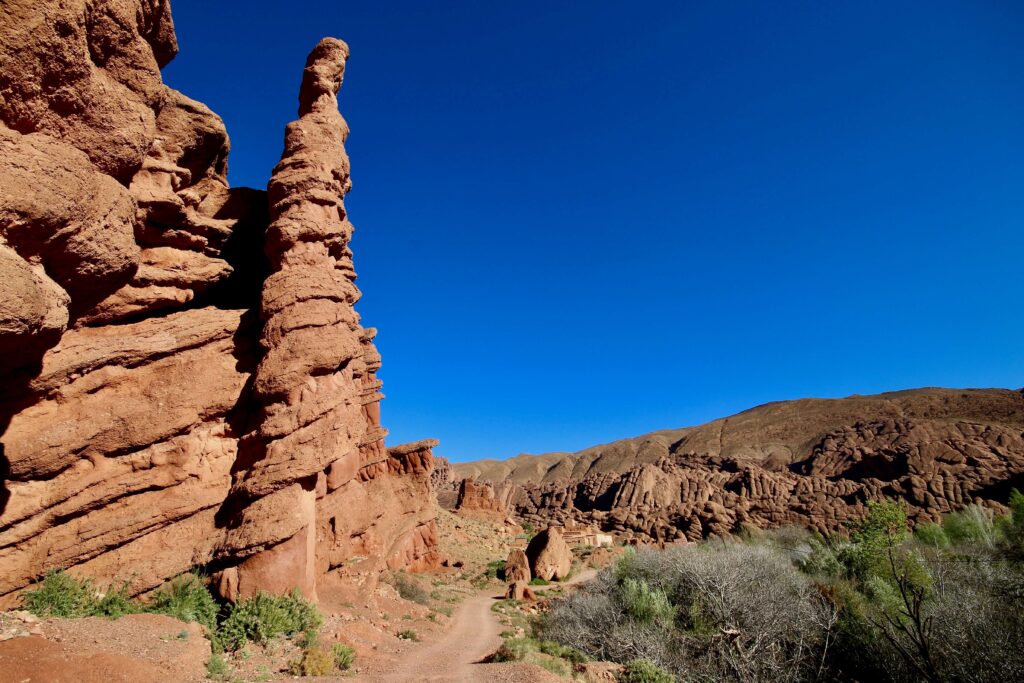
But most also have stories of incredible kindness and hospitality from the locals (including men). I’ve also experienced allyship from men who are sick and tired of their countrymen having a poor reputation for the way they treat female travellers.
When I think back to Australia 20 years ago, women used to receive all kinds of inappropriate comments while passing by construction sites. Today, this behaviour has almost disappeared, as it has become culturally unacceptable and is called out when it does happen.
However, Australia faces appalling levels of violence against women. Statistically, every week a woman is murdered by her partner or ex-partner. So it’s not all roses!
As for harassment of female travellers, I believe Morocco is on the way to eradicating this type of behaviour. Although it is definitely not there yet.
So when I get asked, “Is it safe to travel solo to Morocco?”, my answer is “yes”. But you should come prepared for some level of discomfort during your trip.
It’s crucial to remember that, in most cases, the type of catcalling or harassment you may experience isn’t maliciously intended. Its goal is usually to impress other men or provide the aggressor with a kind of distorted confidence boost.
That being said, no one should feel uncomfortable or threatened by the behaviour of others, even if the “bark is worse than the bite.”
While the responsibility should fall on men to change their behaviour (not women), there are things you can do to mitigate its impact as a solo female traveller in Morocco and make sure your trip of a lifetime is exactly that.
With this in mind, I want to share with you some tips and tricks I’ve found helpful while navigating the streets of Morocco alone, all while answering the question: “Is it safe to travel solo in Morocco?”
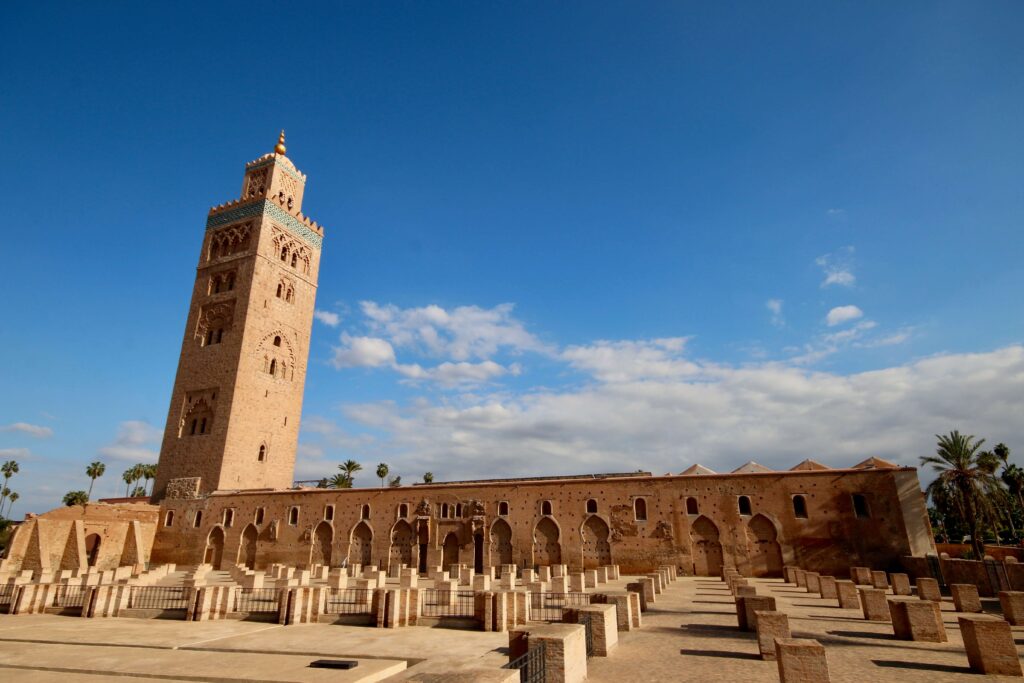
Tips for solo travellers in Morocco
Be selective about what you wear
In an ideal world, women could wear whatever they wanted without attracting unwanted attention. However, when travelling to countries with more conservative cultures like Morocco, I do think it’s important to dress respectfully.
For women, this means avoiding showing too much skin and opting for loose, lightweight clothing (which is usually more suitable for the Moroccan climate anyway). Personally, I’d leave midriff-baring tops and cut-off shorts at home!
Men aren’t exempt either. You’ll quickly notice that local men cover their shoulders and knees. Singlets and shorts aren’t super popular away from the beach.
Is it safe to travel solo in Morocco while showing a lot of skin? I don’t think it necessarily puts you in a more dangerous situation, but it can come across as being disrespectful.
The more time I spent in Morocco, the more I wanted to dress like the local women. Most wear djellabas (a long, hooded robe) and head scarves. I felt there was power in covering parts of my body and a special connection in following the example of my Moroccan sisters.
That being said, “covering up” doesn’t guarantee avoidance of harassment. But for me, it was a simple way to maintain control over my body.
For more ideas about what to pack for Morocco and what to leave behind, check out my detailed article here.

Check in with your headspace
I know from experience that on days when I’m sleep-deprived due to long flights or consecutive days of travel (or when my period is due), I’m ill-equipped to handle harassment. My reaction to unsolicited attention is very different than on days when I’m rested and can simply ignore it or let it pass.
Travel can be exhausting and being aware of your mental state can help you manage your reactions to difficult situations. Haggling in a market can seem tedious when you’re tired and haven’t eaten in hours.
But on the other hand, it can be a fun cultural experience when you’ve had a good night’s sleep and your stomach is full.
This highlights the powerful influence our internal state and emotional energy can have on responding to the outside world. Travel can be an intense and unpredictable experience that tends to magnify these dynamics.
While unwanted attention from men in Morocco may challenge your ability to maintain composure, it’s important to check in with how you’re feeling. Be kind to yourself, no matter how you respond.
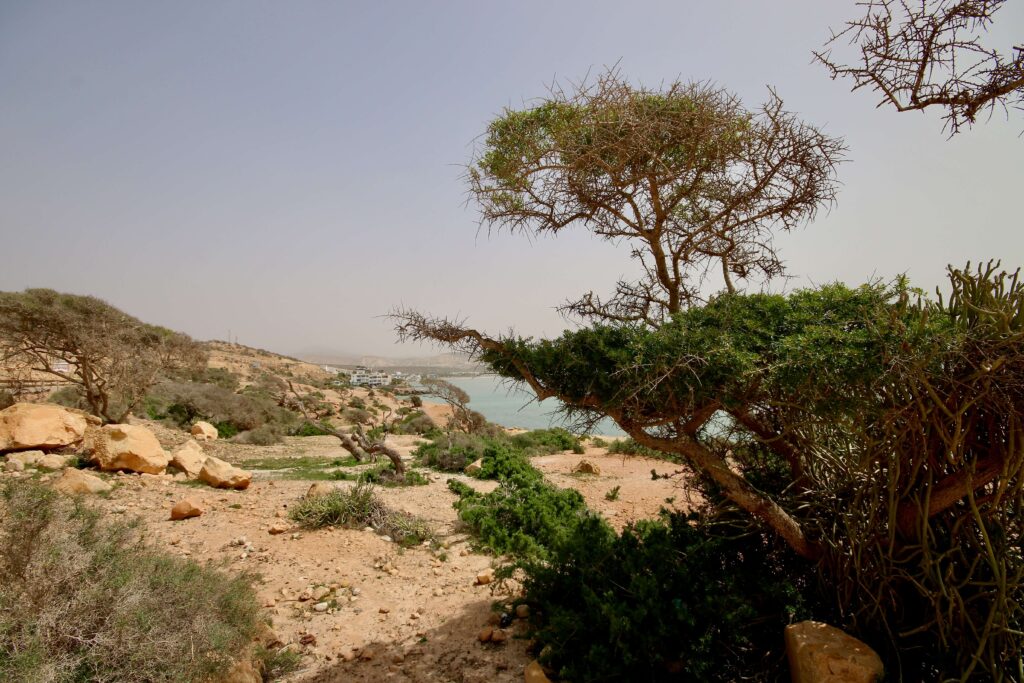
Radiate confidence (even if you don’t feel it)
Although it may be easier said than done when you’re feeling tired and frustrated, stepping out with confidence and determination can alter the experience you have. Looking lost, scared or disoriented can make you seem vulnerable and an easy target for potential threats.
If you feel the men around you won’t treat you with respect, avoid eye contact and walk purposefully where you want to go. Even if you’re not completely sure of your direction!
At the same time, you don’t want to ignore everyone around you, as you could miss out on wonderful cultural interactions.
If men approach or start making unwanted comments, maintain a confident and calm posture. Remember that you don’t owe them anything, not even your time. Address them firmly, making it clear you want to be alone and continue on your way.
Look for allies amongst locals
From personal experience AND conversations with Moroccan male friends, I know there are a lot of allies within the country. These people want to stamp out harassment towards female travellers.
Many are horrified that they have a reputation for intimidating women. In response, they want to do what they can to ensure it doesn’t keep happening.
If you find yourself in an uncomfortable situation and the man isn’t responding to your requests to be left alone, look around to see if there is anyone nearby who can help. The fact of Moroccan street life is that most shop owners and restaurant staff are men. So there will be more potential male allies around than female.
Once in Marrakech, I was being followed by a young guy who wouldn’t take “no” for an answer. Several onlookers who could see I was uncomfortable stepped in and physically removed him from the situation.
It wasn’t something I asked them to do, but they could hear in my voice that I needed help.
I’m not saying that everyone is going to be an ally or have the confidence to tell a fellow Moroccan to leave you alone. But I think there are enough people who will.
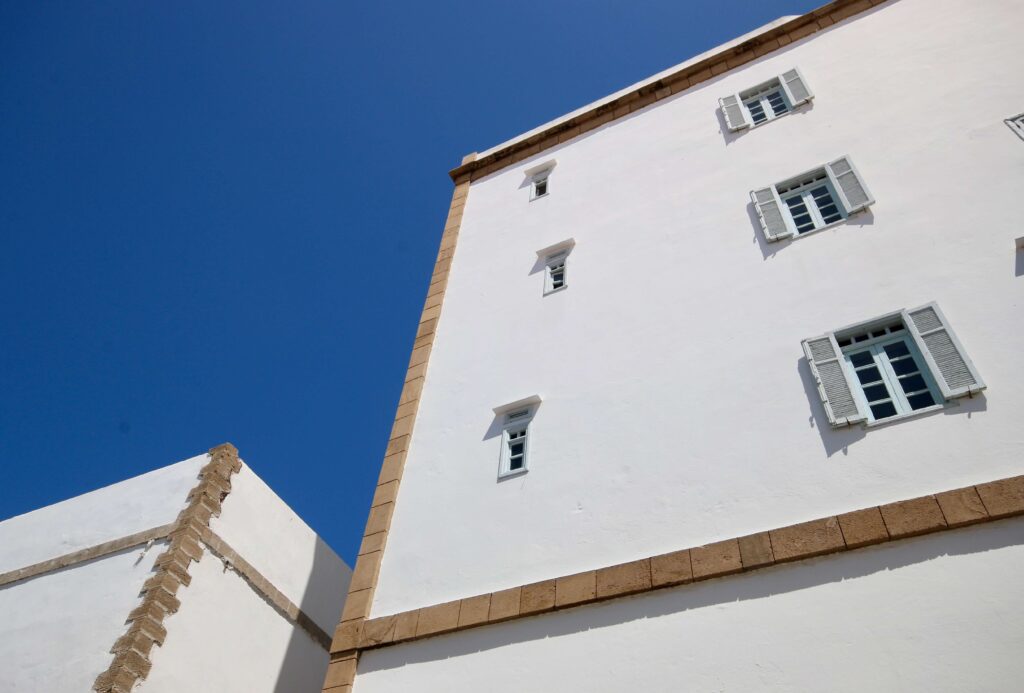
Opt for buses over shared taxis
In addition to bus and train services, Morocco has a third affordable mode of transportation: the grand taxi. This is, essentially, a shared taxi with fixed fares for getting from point A to point B. They generally depart when full from designated taxi ranks and, in most cases, have frequent services throughout the day.
While these impromptu carpooling schemes are certainly a cost-effective alternative to private taxis and shuttles, the confined space and lack of privacy can be uncomfortable.
This is especially true if you’re a solo female traveller surrounded by men. Forget two in the back and one in the passenger seat. In most cases, it’s four people squeezed into the back seat and two in the front, plus the driver.
There’s an inherent vulnerability in being the only woman in a group of local male passengers, no matter how harmless their intentions. The most sensible option is usually to wait for a shared taxi that includes at least one other woman (and sit next to her).
Alternatively, forgo the shared experience in favour of a local bus or train.
Want to know the difference between grand taxis and petit taxis? Check out my detailed article here.
Personally, I only use shared taxis when they are serving routes not offered by buses. Otherwise, I always prefer to have a designated seat all to myself on the bus, even if it costs a little more.
Is it safe to travel solo in Morocco on public transport? Absolutely! Although some options are better than others.
You’ll find more advice about the best ways to get around Morocco as a solo traveller here.
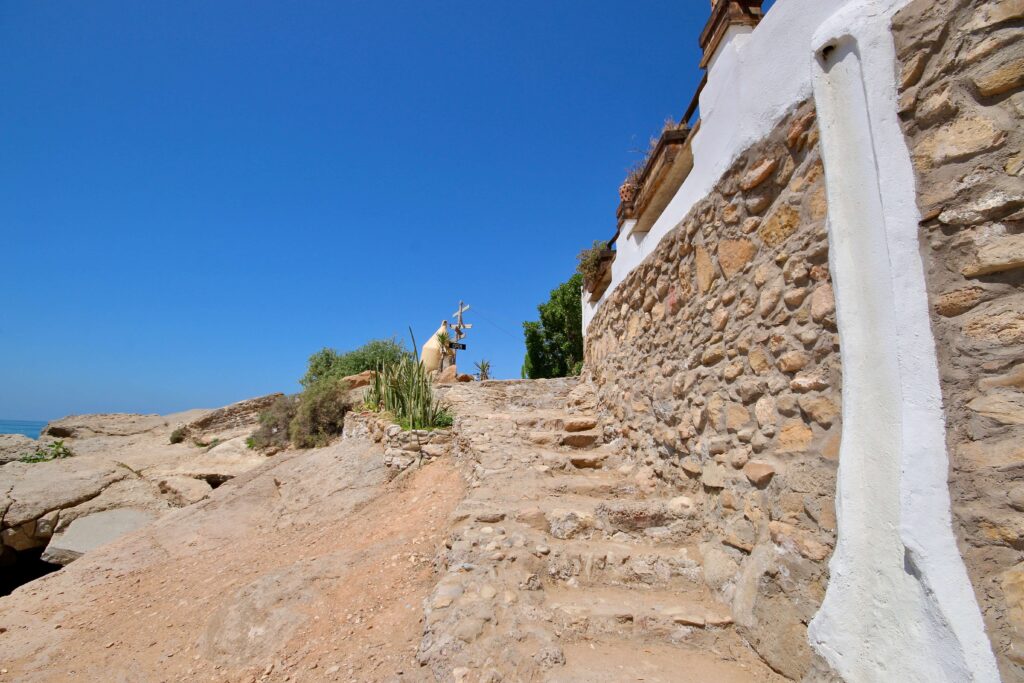
Have some Arabic in your arsenal
Many Moroccan men who harass solo female travellers assume that the women know nothing about the local culture. Let alone speak Darija, the Moroccan form of Arabic.
In my experience, by confidently speaking a few words, you can assert yourself in aggressive or confrontational situations and let the man know his behaviour is unacceptable.
My sisters told me that simply shouting the word ‘la‘ (meaning ‘no’) repeatedly can be an effective deterrent. It will also alert passersby that you disagree with how they are treating you.
They also taught me the word “hchouma,” which literally means “shame,” though it carries a stronger weight in Moroccan society. It suggests something that is almost taboo; it is ingrained in society but not often discussed.
The shameful connotation of “hchouma” adds an extra element and will hopefully shame the aggressor into leaving you alone. It also suggests that you know more about Moroccan culture than they initially thought.
If you’re not confident speaking Darija, the simple mention of the gendarmes (the police force tasked with public safety) can have aggressors running in the other direction.
There can be severe consequences for individuals (and their families) if they run into issues with the Royal Moroccan Gendarmerie. Being threatened with an offence is a worst-case scenario for many.
Still deciding whether to do a group tour or travel solo in Morocco? Head here to discover the pros and cons of each option.
Watch out for petty thefts and scams
As with many places around the world, Moroccan cities aren’t immune to petty crime, with pickpocketing occasionally happening in crowded markets and public spaces.
I’d say that Djemma el-Fnaa in Marrakech is probably one of the highest-risk places. Here, many people are distracted by the live music, snake charmers and street performers.
No matter where you are travelling in Morocco, keep your valuables securely hidden and away from swiping hands. Perhaps that’s in a money belt or a cross-body bag that can’t easily be tampered with.
Top tip:
Avoid wearing lots of expensive jewellery when you’re out and about or making flashy displays of wealth. Generally speaking, Moroccans are humble people and you won’t see locals showcasing their riches to the public.
More common than petty thefts are taxi scams. Some cities are notorious for having drivers who overcharge, don’t run the meter or tamper with it during the journey.
I’ve had both wonderful and terrible experiences with taxi drivers in Morocco. So I don’t want to say this is an issue across the board.
In Fes, I had a driver who didn’t want to give me a rough price for a metered journey and I (naively) got in anyway. Two minutes into the journey, I could see he was blocking the meter and tampering with it.
When I asked to see, it read in excess of 100 dh! I knew this was WAY too much and I immediately told him to stop, threatening to notify a gendarme.
My advice is to negotiate a fixed price rate in advance. Or ask the driver to give you a ballpark figure if the taxi is metered. If they won’t or they are vague about it, then look for another driver.
The “it depends” excuse doesn’t fly. Taxi drivers know roughly what it will cost, even if there’s bad traffic to negotiate.
You can learn more about common tourist scams in Morocco in my detailed article here.

Is it safe to travel solo in Morocco?
If you’ve made it this far, you might be feeling a little intimidated by the idea of visiting Morocco as a solo female traveller. However, I encourage you to reconsider.
The negative experiences I had with men in the country have been far outweighed by the incredible hospitality and warmth of the Moroccan people in general, both men and women.
Countless people have welcomed me into their homes to share a meal, expecting nothing in return. At the markets I frequent, vendors often gift me a bunch of mint or coriander.
In Moroccan culture, there’s a spirit of sharing what you have and caring for others that I find truly admirable. Personally, I feel I have learned a lot about what it means to be a “good person” while living here.
At the end of the day, I married a Moroccan, and his respect for women – including me, my friends and the women in his family – is exceptional. In every country, there are good and bad people. Unfortunately, the actions of the bad ones tend to resonate more loudly.
Finally, I want to acknowledge that many women have not felt safe as solo travellers in Morocco. I think it’s critical that these experiences be shared.
By understanding the uncomfortable situations we may find ourselves in, we’re better equipped to handle them and point out men’s bad behaviour, as well as ensure it doesn’t detract from our incredible experience in the country.
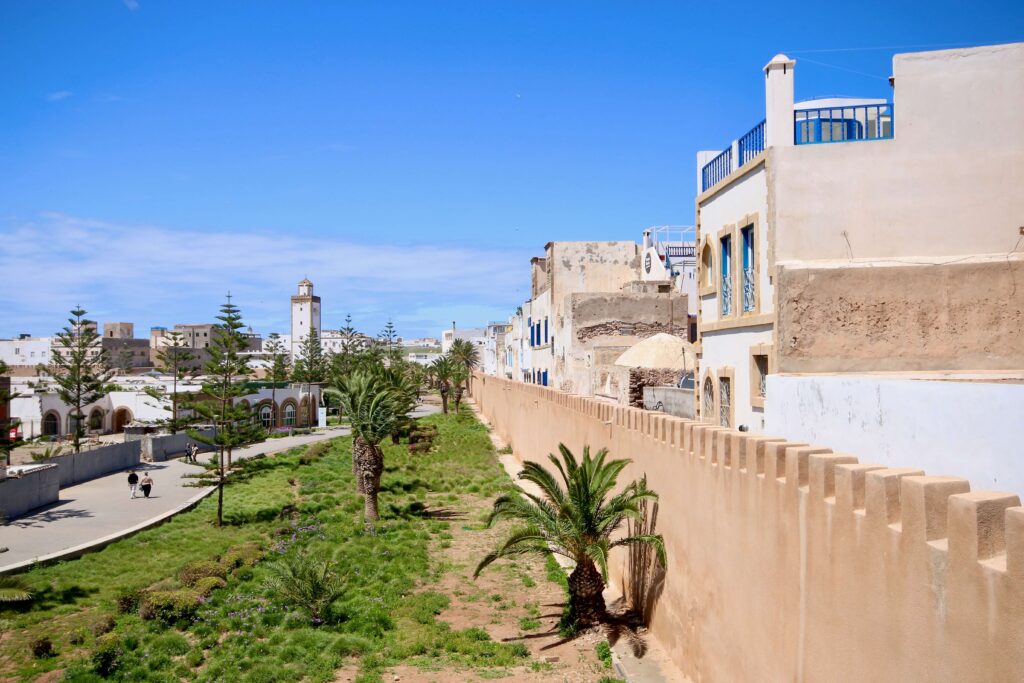
Is it safe to travel solo in Morocco?: FAQs
Is Morocco safe?
Not only do people ask “Is it safe to travel solo in Morocco?” but also “Is Morocco safe?” fullstop. While I personally think Morocco is generally a safe place to travel, it’s important to exercise caution and be aware of potential risks, just as you would when exploring any unfamiliar destination.
Petty crime, such as pickpocketing, is not unheard of and scams (particularly with taxi drivers) can occur. But violent crime against tourists is quite rare. And in most cases, you are never far from help if you do find yourself in a challenging situation.
By staying alert, using common sense and following basic safety precautions, most visitors to Morocco enjoy a trouble-free trip. I would advise solo travellers to read up on potential issues or harassment that may occur, so you can best equip yourself to handle it.
Should women visit Morocco alone?
Yes! I don’t think being a woman or wanting to travel solo should stop you from visiting Morocco. Or anywhere in the world, for that matter. That being said, I do think solo female travellers should be aware that harassment is not uncommon and equip themselves mentally to handle it.
Be prepared for some degree of catcalling and harassment from men on the streets, particularly in Marrakech, Fes and Casablanca. Ignore anybody who is giving you unwanted attention. Also, seek help from locals if you feel the situation is one you can’t handle alone.
I always advise my female friends to dress modestly to avoid attracting the attention of men and to respect the local customs.
It’s a good idea to stay in riads and hotels located in busier areas. That way, you aren’t walking down dark alleys alone at night. Also, avoid any substances (drugs or alcohol) that could inhibit your judgment.
What should women wear in Morocco?
When deciding what to wear while travelling in Morocco, I recommend choosing clothing that is both culturally appropriate and functional for the climate and activities.
While many areas of Morocco are used to seeing tourists, it’s still advisable to dress relatively modestly to avoid unwanted attention. This is also a show of respect to locals, particularly older people who aren’t exposed to Western culture online.
This means avoiding clothing that is overly revealing or tight-fitting, such as short shorts, miniskirts, cropped tops or low-cut shirts. Instead, opt for loose, breathable clothing that covers the shoulders, upper arms and legs at least to the knees. Flowy maxi dresses, linen pants, loose button-down shirts and t-shirts are all good options.
Remember to also carry a lightweight scarf or shawl that can be used to cover your head when entering holy sites, such as the Hassan II Mosque in Casablanca (the only Moroccan mosque that’s open to non-Muslims).
In terms of functionality, choose fabrics that are lightweight, quick-drying and provide some protection from the sun. Remember, temperatures can soar during the day in the summertime.
Closed-toe walking shoes are a “must” for navigating the uneven medina streets. Meanwhile, a swimsuit is essential if you’re staying at a riad or hotel with a pool
Should first-time solo travellers go to Morocco?
Morocco can be an incredible destination for solo travellers. But it’s important to carefully consider whether it’s the right choice for your first solo trip.
It’s a fascinating place for anyone interested in architecture, history or North African cultures, as well as boasting spectacular landscapes in the Atlas Mountains and the Sahara Desert.
That being said, travelling solo in Morocco also comes with its challenges, particularly for those new to independent travel. The persistent attention from touts and vendors can be overwhelming, the cultural norms around dress and behaviour may feel unfamiliar and navigating the logistics of transportation requires some research and planning. Plus, not everyone speaks English….or French for that matter.
But if these are all challenges you’re willing to embrace, then book the ticket!
A solo trip to Morocco can be an incredibly rewarding experience and will give you the confidence to travel almost anywhere alone. Connecting with other travellers, whether through hostels or organised tours, can also provide a sense of camaraderie and support, so you’re never completely alone.
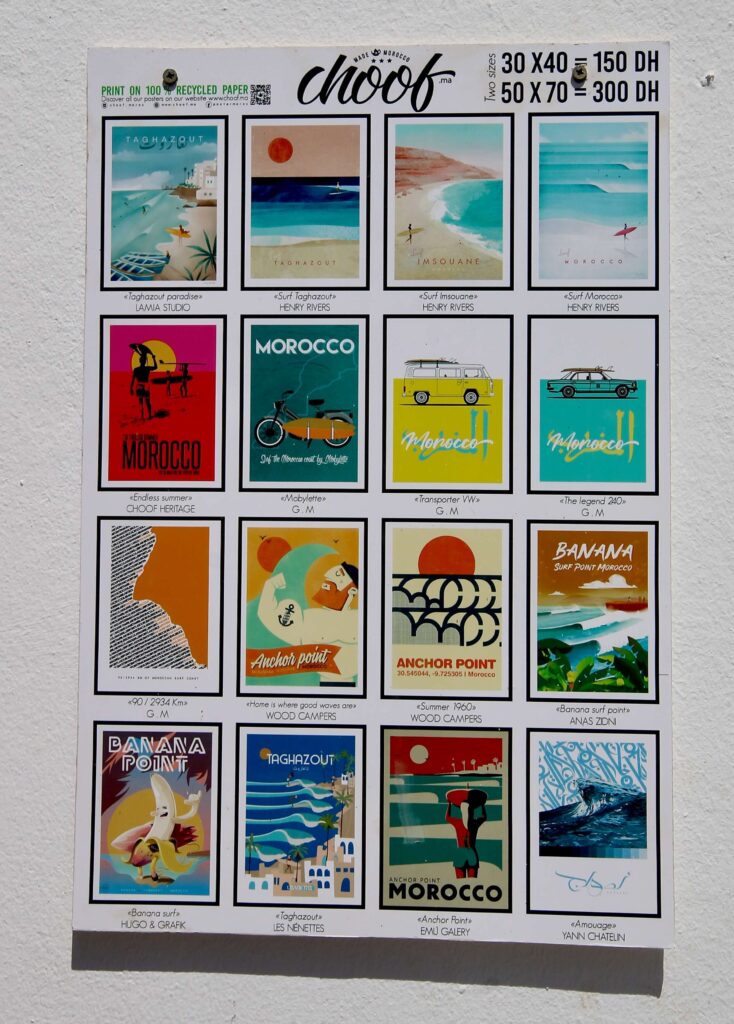
What is the best way to travel around Morocco as a solo female?
When travelling solo in Morocco, there are two different ways you can do it: independently or as part of a group tour. Each has its own perks and will appeal to different people, so there’s no right or wrong option.
Group tours provide a secure and structured way to experience the highlights of Morocco. They have a set itinerary, knowledgeable guides and a built-in social circle of fellow travellers to share the journey with.
The logistics, accommodations and transportation are all arranged for you. So all you have to do is wake up each day and soak in the sights. There’s added safety in travelling with a group and with a local guide who will have your back in any tricky situation.
Top tip:
While there are heaps of perks of group tours, some find them restrictive, with limited free time to venture off the beaten path or linger in a destination you love a little longer. They also tend to be more expensive than independent travel as you are paying for guides (who are usually worth their weight in gold for cultural insights) and someone to do all the planning for you.
For the more intrepid solo female traveller, exploring Morocco independently offers the flexibility to create your own adventure. You set the pace and priorities, whether that means spending an extra day in a city you love or taking a detour to a lesser-known village in the Atlas Mountains.
It’s a great option if you don’t just want to do the stock-standard “Morocco highlights” (Marrakech, Fes and the Sahara Desert) or if you’re travelling for an extended period of time.
Independent travel does require more planning and self-sufficiency, from arranging accommodations to navigating transport logistics. But it does mean you get to do exactly what you want to do each day. I think in terms of personal growth, it’s hard to beat! You’ll save money by organising everything yourself and you’re probably more likely to connect with other people along the way.
Wondering if it’s safe to travel solo in Morocco if you’re going independently? I think so, provided you take necessary precautions and have your wits about you.
Ultimately, the best way to travel solo around Morocco depends on your personal travel style, comfort level and the balance you seek between structure and spontaneity. It’s also possible to do a bit of both – book a tour for a few days and spend some time flying solo before or after.
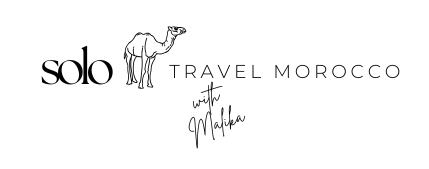
PLAN YOUR TRIP WITH MY FAVOURITE RESOURCES:
Find hotels via Booking
Book tours and attractions via Viator or GetYourGuide
Find a rental car via Discover Cars
Book flights via Kiwi or Booking
Search for buses and trains via 12Go or Omio
Get travel insurance via SafetyWing
Buy a digital eSIM with Airalo
By purchasing through my links, you’ll be supporting my website at no additional cost to you

I’m Malika, an Australian-born travel writer with an intense love for Morocco. I first travelled here solo in 2014 and after meeting (and marrying) a local, I made this North African gem my home.
Over the last 10 years, I have explored the country extensively, travelling to all corners with my partner, friends and solo.
